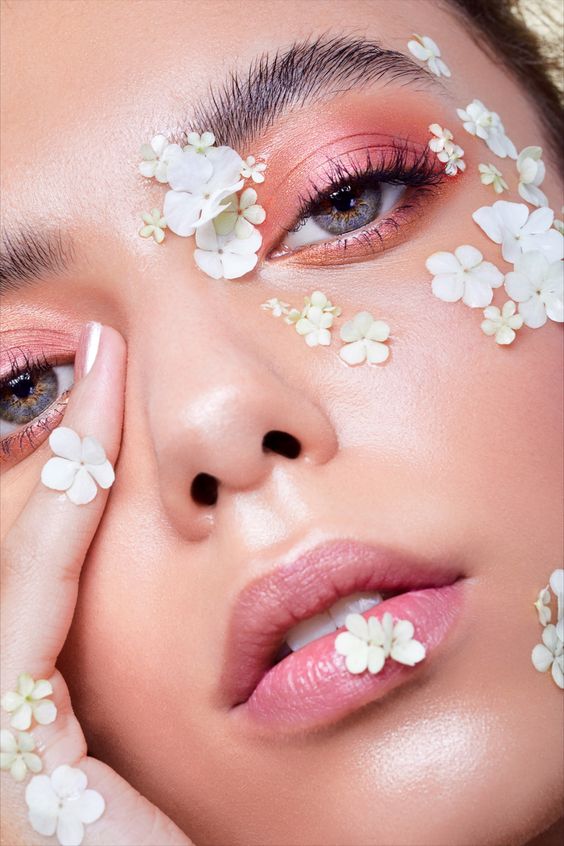
Help Your Skin to Stay Young with Marine Collagen
Collagen is the most abundant protein in the human body. It's found in our tendons, ligaments, skin, muscles, bones, and blood vessels.
Any skincare lover will be well acquainted with collagen and be familiar with reading the term on their favourite skincare bottles, but what EXACTLY is collagen, where is it found, what does it do for our skin and how can we supplement it's natural decline?
What is Marine Collagen?
Collagen is essentially protein molecules made up of amino acids, providing structural support to the skin, connective tissues and more.
The name ‘‘collagen’’ is used as a generic term for proteins forming a characteristic triple helix of three polypeptide chains.
The primary amino acid sequence of collagen is: glycine-proline-X or glycine-X-hydroxyproline.
“X” can be any of the other 17 amino acids i.e. glycine-proline-lysine or glycine-lysine-hydroxyproline.
What is Marine Collagen Made of?
Much of the marine collagen sold today is derived from the skin and scales of fish. Once the collagen protein is removed, it's broken down into smaller units of protein (collagen peptides) through a process called hydrolysis.
What is Marine Collagen Good For?
Marine Collagen Benefits for Hair and Nails
Evidence to date, suggests that supplementing with marine collagen has the ability to increase hair and nail growth.
Marine Collagen Benefits for Skin
While collagen production naturally declines as we age, studies suggest that consuming marine collagen maintains dermal thickness by promoting the number and activity of skin fibroblasts, or cells in the dermis that produce collagen and other fibres. In one study, women who took a supplement containing hydrolysed Type I, as is within Beautifully Nourished’s Hair Nail and Skin Complex, had better supported skin with the diminished appearance of fine lines, wrinkles and better maintained moisture levels.
Collagen Types Explained
Where does collagen powder come from?
Bovine Collagen vs. Marine Collagen:
The main difference here relates to the source of collagen.
- Marine Collagen is sourced from Fish
- Bovine Collagen is sourced from Mammal – typically cattle.
The type that you wish to ingest depends on of dietary preferences. Whatever your preference, always look for look for sustainable and clean sourcing as with Beautifully Nourished. Vegan collagen is available, however research into this area remains in it's early phases.
Type I, Type II, and Type III
There are at least 28 "types" of collagen that can be found in the human body, but three types—Type I, Type II, and Type III—comprise about 90% of collagen in the body.
Marine collagen contains Types I & II collagen.
Beautifully Nourished Hair, Nail and Skin Complex focuses upon Type I collagen, this collagen type is found all over the body and is highly concentrated in skin, hair, nails.
Marine Collagen VS. Hydrolysed Collagen
The term peptides refers to the short chains of amino acids. The main amino acids in collagen are glycine, proline, hydroxyproline, and arginine. These provide the building blocks for proteins such hair, skin and nails.
Collagen is turned into collagen peptides through the process of hydrolysis (this is why you will often hear the term “hydrolysed collagen"). In order for our bodies to experience the benefits of collagen supplements, the collagen must be broken down into these amino acid chains so that we can best absorb it.
Essentially: If it's not hydrolysed, it is not useful.
Beautifully Nourished’s Hair Skin and Nail Complex will only ever contain hydrolysed collagen alongside vitamin C for the upmost absorption and uptake within the body
Supplementing with Marine Collagen
Why is supplementing with collagen so important?
Collagen makes up 75% of the dry weight of our skin. As we age, our skin's inner layer loses collagen, becoming less supple and more vulnerable to damage. After the age of 18 our collagen levels start to drop, and this accelerates by 1.5% per year from the age of 30.
We need a collagen supplement to replace what we lose with age. There has been an abundance of research investigating the benefits of taking collagen for women over 30, finding that daily oral marine collagen intake can improve skin elasticity, skin hydration and reduces the visibility of ageing.
Skin health is one of the most well researched benefit of taking collagen with studies consistently showing that collagen improves skin elasticity, helps skin better hold onto moisture, and deepen the density of collagen fibres within skin. Studies also suggest that supplements such and Beautifully Nourished's Hair Nail and Skin Complex can improve both skin hydration and the dermal collagen network with the potential to improve the markers of skin ageing.
Like collagen levels, skin elasticity, starts to decline in our 20s. A 2014 study in Skin Pharmacology and Physiology, studied women aged 35 to 55. The women ingested a collagen supplement or a placebo once daily for eight weeks. At the study's end, those who took the collagen had improved skin elasticity compared to those who took the placebo. AMAZING!
Another study by Nutrition Research (2018) investigated the role of an oral collagen supplement that also contained other ingredients (chondroitin sulfate, glucosamine, L-carnitine, vitamins, and minerals). Researchers found that the supplement increased skin elasticity and hydration. Beautifully Nourished’s Hair, Nail and Skin Complex features 50mg Marine Collagen, 50mg of marine chondroitin, 80mg MSM, and 80mg of Vitamin C per tablet.
Boost Collagen Production with Food
In conjunction with your supplementation routine, it is important to maintain a healthful, varied and colourful diet.
We can help our bodies to produce this important protein by making sure we get plenty of the skin nourishing nutrients, including:
- Vitamin C. Vitamin C rich foods include citrus fruits, broccoli, potatoes and blackcurrant.
- Proline. Proline rich foods include asparagus, mushrooms and cabbage
- Glycine. Glycine rich foods include meat, fish, dairy products and legumes
- Copper. Copper rich foods include dark chocolate (happy squeal!), spirulina, shiitake mushrooms and nuts and seeds
What Damages Collagen?
Just as it is important to be aware of nutrients that can stimulate collagen production, it is equally as important to be aware of foods that can destroy and, or damage collagen.
Sugar interferes with collagen’s ability to repair itself. Glycation occurs when a sugar molecule bonds to a protein or lipid molecule without enzymatic regulation. This process is caused by the presence of excess glucose in skin fibres. This excess triggers an internal reaction in which sugar molecules adhere to the collagen and elastin proteins, which normally help keep skin firm and supple.
Getting too much sunshine: Ultraviolet radiation can reduce collagen production. Avoid excessive sun exposure.
Smoking reduces collagen production. This can impair wound healing and lead to wrinkles.
In summary and as mentioned above, when we ingest hydrolysed collagen supplements the results are plentiful, with studies consistently showing marine collagen's skin, hair and nail benefits. Research to date has evaluated collagen's effects on wound healing and skin ageing, concluding supplements can increase skin elasticity, hydration, density.
Hailed as "a skin saviour" by health & beauty experts and nutrition enthusiasts alike, we conclude Marine Collagen as a worthy investment and highly recommend this holistic view to skin care alongside existing skin and beauty regimes.
Katherine Elyse Blake, Beautifully Nourished Founder, BSC Nutrition







Leave a comment
This site is protected by hCaptcha and the hCaptcha Privacy Policy and Terms of Service apply.